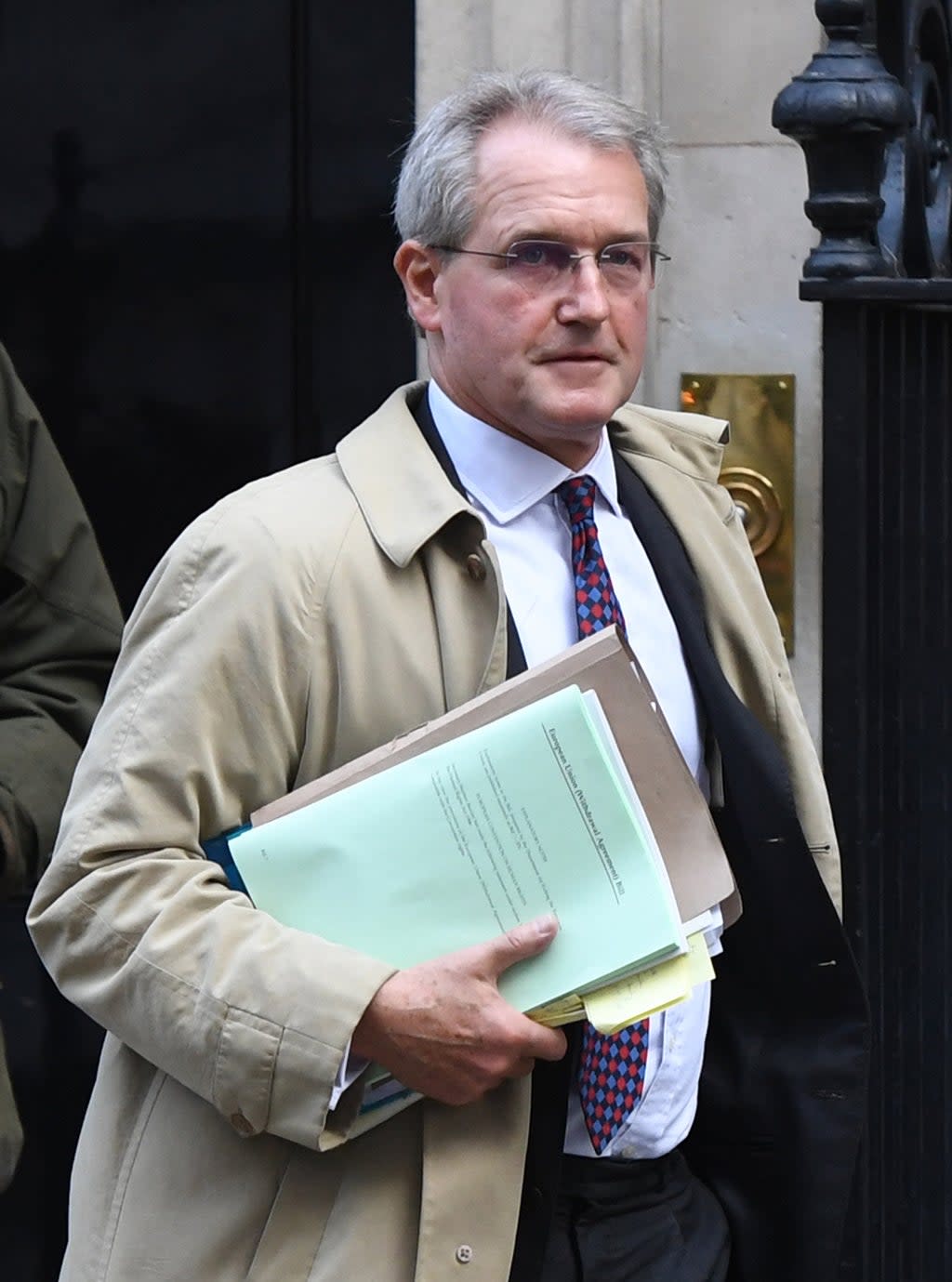MPs vote to prevent immediate suspension of Tory over alleged lobbying breaches

MPs have voted for a Government-backed bid to consider an overhaul of their disciplinary process and prevent the immediate suspension of a Conservative former minister who was found to have committed an “egregious” breach of lobbying rules.
In an unprecedented move, they chose not to back the cross-party Standards Committee’s call for a six-week ban from Parliament for Owen Paterson after it was ruled that he repeatedly lobbied ministers and officials for two companies paying him more than £100,000 per year.
Instead the House of Commons backed a Tory amendment calling for a review of his case after Conservative MPs were ordered to support the bid and Boris Johnson questioned whether the investigation into Mr Paterson was fair as his party was accused of “wallowing in sleaze”.
The MP for North Shropshire, who angrily denied the findings against him, could have faced recall proceedings that may have triggered a by-election if the recommended six-week suspension had been approved.
Ministers had placed Tories under a three-line whip to support the amendment tabled by former Commons leader Dame Andrea Leadsom, a senior Conservative MP told the PA news agency.
There were shouts of “shame” and “what have you done to this place” from the oppositions MPs as the House voted 250 to 232, majority 18, to approve the amendment.
Deputy Labour leader Angela Rayner accused the Tories of being “rotten to the core” after the “absolute disgrace”.
As well as reviewing Mr Paterson’s case, the amendment calls for a Conservative-majority committee led by former culture secretary John Whittingdale to examine the standards system.
Parliamentary Commissioner for Standards Kathryn Stone recommended a ban from the Commons of 30 sitting days for Mr Paterson in a report approved by the Standards Committee.
Ms Stone’s investigation found he repeatedly lobbied on behalf of two companies for which he was acting as a paid consultant – Randox and Lynn’s Country Foods.
Mr Paterson claimed the investigation was unfairly conducted and argued the manner in which it was carried out had played a “major role” in his wife Rose’s suicide last year.
Tory Ministers and MPs just voted to over-rule an independent cross-party committee which found that a Conservative MP repeatedly breached the rules by pocketing over £100,000 a year to lobby Ministers on behalf of his paymasters.
An absolute disgrace. Rotten to the core.— Angela Rayner (@AngelaRayner) November 3, 2021
The Prime Minister said paid lobbying in the Commons “is wrong” and those “who are found guilty of that should apologise and pay the necessary penalties”.
“But that is not the issue in this case or this vote that is before us,” he added to MPs.
“The issue in this case, which involved a serious family tragedy, is whether a member of this House had a fair opportunity to make representations in this case and whether, as a matter of natural justice, our procedures in this House allow for proper appeal.”
Ms Rayner, standing in for Labour leader Sir Keir Starmer during Prime Minister’s questions after he had a positive coronavirus test, accused the Conservatives of “wallowing in sleaze”.
“If it was a police officer, a teacher, a doctor, we would expect the independent process to be followed and not changed after the verdict – it’s one rule for them and one rule for the rest of us,” she added.
There was a significant rebellion from Conservatives who refused to follow orders to back the bid, with longest-serving MP Sir Peter Bottomley suggesting overhauling the system now would be improper.
“We chose the system we are now using,” he said. “If we want to consider changing it, we do it in a proper way instead of considering it in the way we are now.”
Downing Street earlier urged MPs to seek “cross-party agreement on a new appeals process”, arguing the right of appeal is “sacrosanct in providing fairness and natural justice”.
The Prime Minister’s press secretary insisted “this isn’t about one individual case and we’re not having a view on the ruling or looking to overturn the ruling” despite the amendment specifically naming Mr Paterson.
She insisted the Paterson case had “crystallised” the demand for reform, saying it had been “long standing” among MPs, but declined to say why changes had not been introduced earlier.
“It’s absolutely not a case of MPs marking their own homework. This is about setting up a separate appeals process to strengthen the system,” the spokeswoman added.
Daniel Bruce, chief executive of anti-corruption group Transparency International UK, said the amendment will set a “terrible precedent” that will “only reinforce the perception that politicians play by a different set of rules”.
Standards Committee chair Chris Bryant had warned that if the Leadsom amendment won then “the public would think that we would be the Parliament that licensed cash for questions”.
There had never been a successful amendment to reduce the suspension of an MP since the Second World War while the House had never voted down a disciplinary sanction since the creation of the modern standards system.
Read More
Johnson defends bankers’ tax contributions amid concern over household bills
Johnson backs standards process overhaul ahead of vote on Paterson suspension
Owen Paterson: MPs vote not to suspend Tory who broke lobbying rules

 Yahoo News
Yahoo News 
